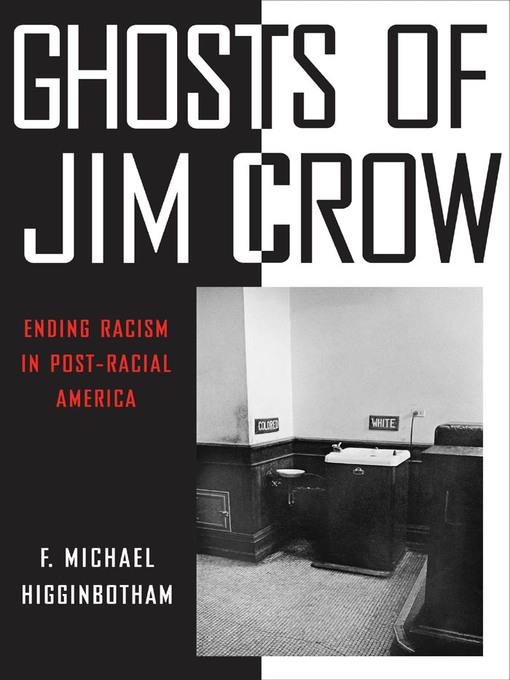
Ghosts of Jim Crow
Ending Racism in Post-Racial America
- اطلاعات
- نقد و بررسی
- دیدگاه کاربران
نقد و بررسی

January 14, 2013
Challenging the notion that history has finally produced a post-racial America, University of Baltimore law professor Higginbotham (Race Law: Cases, Commentary, and Questions) contributes an indispensable perspective on an enduring “racial paradigm” in contemporary American society, while insisting, with concrete proposals, that true racial equality remains within reach. Despite undeniable progress and real gains for African-Americans (and other minorities) since 1954’s landmark Brown v. Board decision, the author points to the “astonishing” socioeconomic gap persisting between whites and blacks. Dismissing conservative arguments that devolve responsibility for the lasting socioeconomic gap solely onto blacks themselves, Higginbotham’s historical analysis (resting on legal case histories and an extensive secondary literature) describes an interdependent set of structural and cultural factors: false beliefs of white superiority on the one hand, black victimization on the other, sustained by notions of racial hierarchy. With the aim of ending the paradigm, Higginbotham recommends several reasoned, if familiar, liberal panaceas, including expanding successful affirmative action strategies, acknowledging racism publically, and issuing reparations for its historically harmful effects. These may well prove the most contentious aspects of his narrative, but the solutions are put forward in a preliminary manner, inviting further discussion. His preceding careful analysis is the more concrete offering, and makes clear the necessity of such discussions.

January 15, 2013
A vision of enhancing racial equality--or simply lessening racial inequality--in America. By African-American legal scholar Higginbotham's account, it wasn't until he entered a well-heeled private school that he encountered the N-word thrown his way. When it was, a white coach cracked down hard, issuing "a zero tolerance policy for racial epithets." No more such epithets were forthcoming, though not necessarily out of any inborn kindness on the part of the man who cast that first stone. The takeaway for Higginbotham: Civil rights movements on the part of the oppressed are well and good, but "whites needed to stand up against racism in order for it to cease." Things are better in some respects than in the 1960s, but, writes the author, the formula has changed. Blacks--and, to a greater or lesser extent, other nonwhite ethnic groups--are no longer judged and discriminated against strictly on the basis of race, but also on factors of class, education, income and access to political power, among others. For example, regarding sports: "Recruited black players could play in games, but 'walk-on' black players could not." Against such broadband exclusion, Higginbotham mounts a spirited defense of affirmative action policies that is backed by good case law and by common sense--or at least a sense of fair play, for, as he notes, few complain about legacy students getting into a particular college, but people certainly do complain when the numbers of black--or Asian or Hispanic--students go up, particularly if there is a perception that they are somehow undeserving. America may be trending toward justice, but that trend is slow. Otherwise, Higginbotham asks elsewhere in this searching argument, why is there a disproportionate number of homeless blacks? A book worthy of a wide audience and wide discussion.
COPYRIGHT(2013) Kirkus Reviews, ALL RIGHTS RESERVED.




دیدگاه کاربران